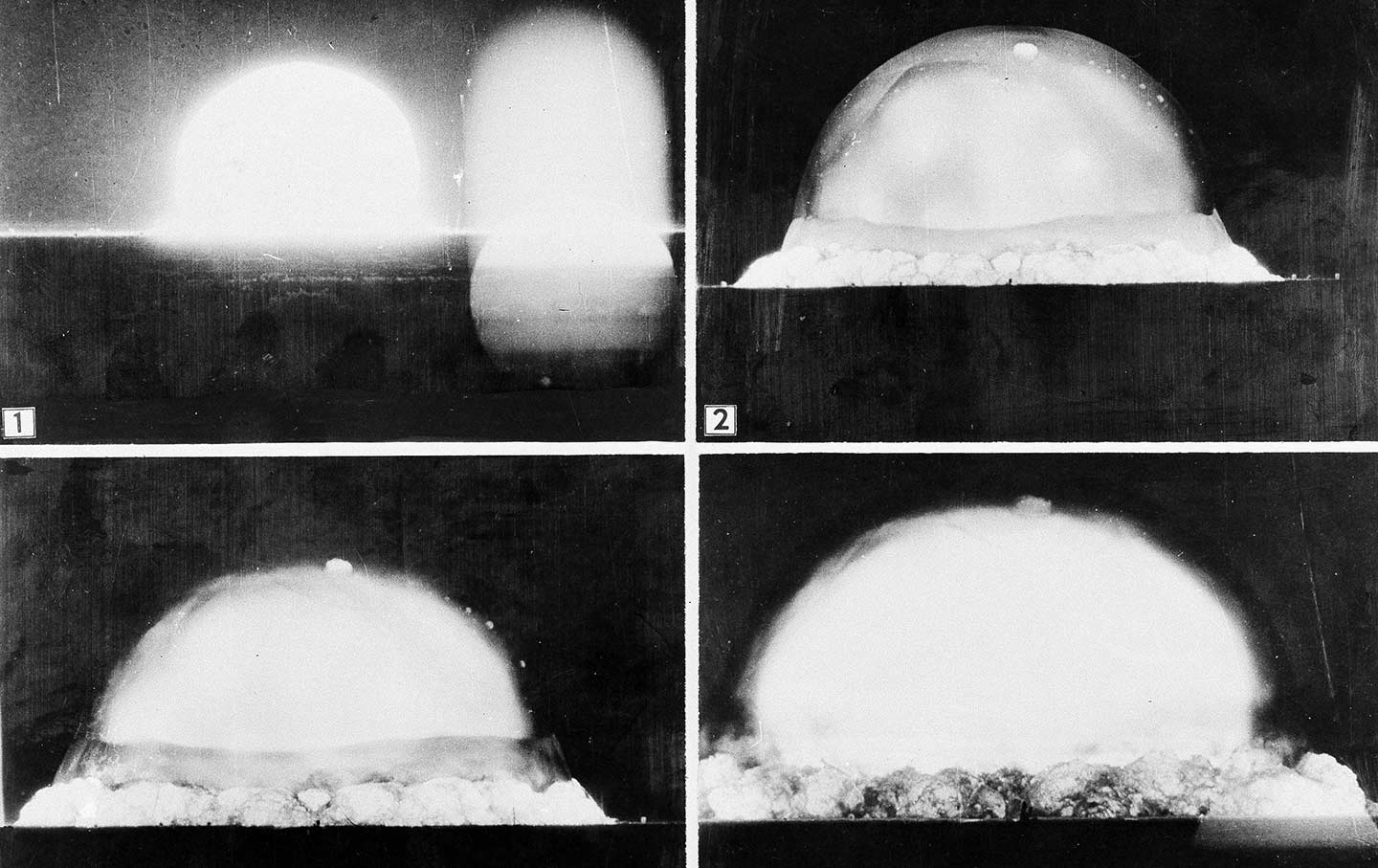The Nuclear Club, Part 2
On this episode of American Prestige, a continuation of our discussion on US efforts to maintain nuclear supremacy during the early Cold War.

Here's where to find podcasts from The Nation. Political talk without the boring parts, featuring the writers, activists and artists who shape the news, from a progressive perspective.
On this episode of American Prestige, Danny and Derek welcome back Jonathan Hunt, assistant professor at the U.S. Naval War College and a fellow of the Nuclear Security Program at Yale University, to talk about his book The Nuclear Club, which follows the efforts of a select few world powers to maintain exclusive access to nuclear weapons. This final episode examines President Lyndon Johnson’s approach to nuclear weapons, the 1968 Non-Proliferation Treaty (NPT) and how Vietnam factored into its scope, the Arms Control and Disarmament Agency (ACDA), tactical nuclear weapons, the Treaty of Tlatelolco, and more.
Note: The views expressed here are those of the author alone and do not necessarily represent the views, policies, or positions of the U.S. Department of Defense or its components, to include the Department of the Navy or the U.S. Naval War College.
Advertising Inquiries: https://redcircle.com/brands
Privacy & Opt-Out: https://redcircle.com/privacy

The first atomic bomb test was conducted at Alamogordo, N.M., July 16, 1945.
(AP / US Army)On this episode of American Prestige, we welcome back Jonathan Hunt, assistant professor at the US Naval War College and a fellow of the Nuclear Security Program at Yale University, to talk about his book The Nuclear Club, which follows the efforts of a select few world powers to maintain exclusive access to nuclear weapons.
This second part of the discussion picks up in the mid-1950s after Eisenhower’s “Atoms for Peace” speech, covering non-proliferation movement leaders like Irish foreign minister Frank Aiken, the flexible response policy and other changes to America’s nuclear posture under the Kennedy administration, the 1963 Partial Test Ban Treaty, proliferation optimists vs, pessimists, and more through the late 1960s.
Note: The views expressed here are those of the author alone and do not necessarily represent the views, policies, or positions of the US Department of Defense or its components, to include the Department of the Navy or the US Naval War College.

Here's where to find podcasts from The Nation. Political talk without the boring parts, featuring the writers, activists and artists who shape the news, from a progressive perspective.
On this episode of American Prestige, Danny and Derek speak with Jeff Stein, White House economics reporter for The Washington Post, about his series on US sanctions for the Post, "The Money War". They talk about the function of economic sanctions for the US and how that's changed over time, broader cases like Iran to targeted ones like Russian businessman Viktor Vekselberg, how sanctions can "disconnect" war from the public, the humanitarian impact, and more.
Advertising Inquiries: https://redcircle.com/brands
Privacy & Opt-Out: https://redcircle.com/privacy
